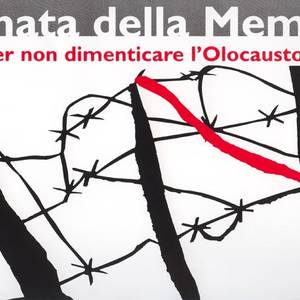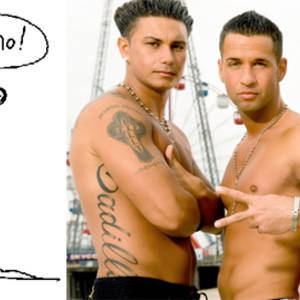January 27 marks International Holocaust Remembrance Day, the date when victims of the Shoah are remembered in celebrations and memorial services throughout Europe, from Poland to Italy.
You chose: Facts & Stories
-
-
This colloquium is not about the MTV show “Jersey Shore” and it does not justify it in any manner. This colloquium is about the phenomenon of the “Guido” that, regardless of its merits or lack thereof, has its origins and is associated with Italians in America. Whether one likes it or not, this component of Italian-American youth—an articulation of cultural expression, call it what one wishes—does exist. We are not asking anyone “to accept” this or any other “sub-culture” that may exist in the Italian-American community. Yet, precisely because this culture has been show-cased on television, and precisely because it has remained unknown to many, we need to be sure that we can speak to it in an informed manner.
-
Facts & StoriesThe Director of “Pane Amaro” (Bitter Bread), an acclaimed doumentary about the life and history of early Italian immigrats in the U.S., talks about whether sweeping dirt under the rug is the way to deal with undesirable facts. His film touched upon several diffucult topics, including he lynching of thirty-nine Italian immigrants across the United States between 1886 and 1916. “Occasionally you do find some people who, when faced with difficult, uneasy subjects, react by closing their eyes; they prefer not to know about them and even try to prevent you from talking about them. They use a metaphor, you know, they say that we shouldn’t ‘wash our dirty laundry in public’. And I think it doesn’t advance the conversation. I do believe that we need to explore difficult issues such as this."
-
There is nothing new in certain segments of the community trying to impose their views of what it means to be Italian American on others. This controversy reminds me of recent tensions around the celebration of Columbus Day. On the one hand, identifying with the discoverer of their adopted land was an ideal strategy to gain full inclusion into mainstream America. But on the other hand, in today’s era of multiculturalism with a rhetoric that celebrates cultural diversity, the “discovery” of America by Columbus is equated with the beginnings of the demise of native peoples and their cultures. And there are already many Italian Americans who do not celebrate Columbus Day because of what Columbus has come to represent. It seems to me that this desire to squelch any consideration of the so-called “Guido culture” is a similar attempt by some to impose a uniform identity on a diverse group.
-
Pope Benedict XVI visited the main Jewish synagogue in Rome on Sunday January, 17. He was the first pope in 24 years to visit the Tempio Maggiore, or Great Temple. It was an event that stirred up many debates and tensions not only between Catholics and Jews, but also within Italy's Jewish community.
-
Italian Americans should put an end to their obsession with their image in the television media. Television, in general, tends to caricature reality; it likes showing things that are over the top. This is not about Italian Americans—it is about the media, it's about "reality show." The controversy about MTV's Jersey Shore and the Calandra Institute's colloquium on the "Guido lifestyle" should not be resolved by censorship. It is only through dialogue that you are going to better understand these complex issues of ethnic identity and the media, and further the discussion. Censoring dialogue is always a dangerous act. It reveals a kind of ethnic nationalism that is only about pride and doesn’t allow for any kind of questioning or dissent.
-
The message: it works! Italy’s campaign to crack down on thefts of its treasures of art and archaeology has borne fruit, and the proof is in the statistics in the year-end report, released January 14 in Rome by General Giovanni Nistri, head of Italy’s crack Carabinieri art squad.
-
Rage and fear. This is what comes out of the images from Rosarno, a small town near the western coast of Calabria, where violent clashes broke out after two African immigrants were wounded by a pellet gun attack by white youths in a car.
-
-
Open Letter to Mr. Arthur Piccolo and all those who believe in boycotting intellectual investigations






































